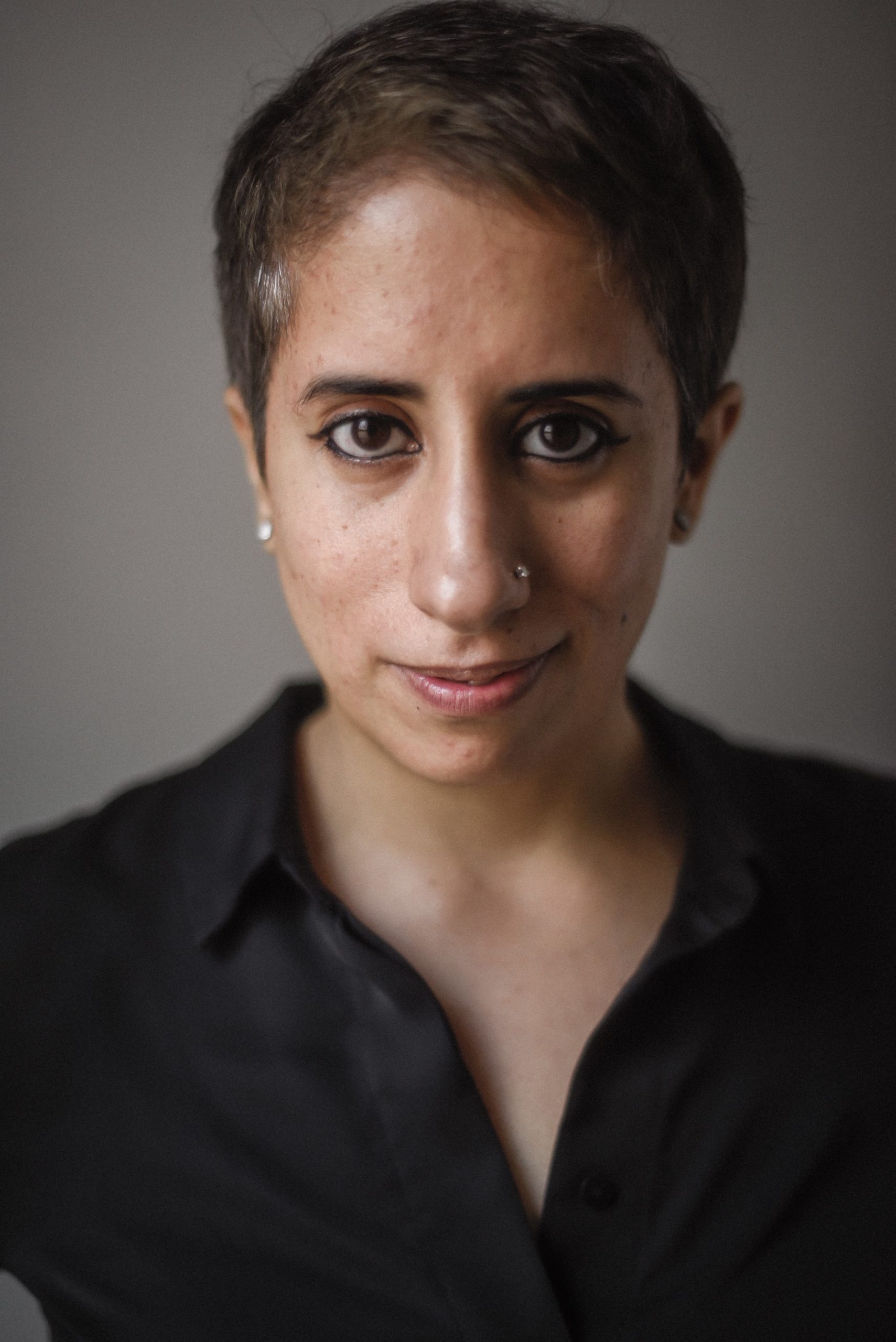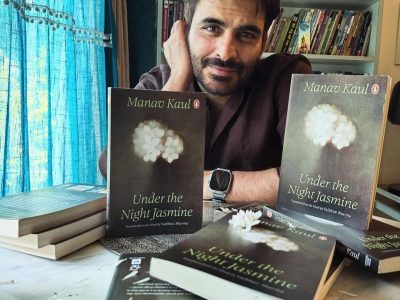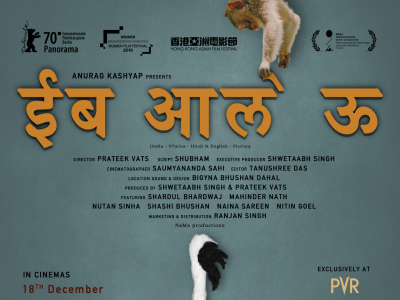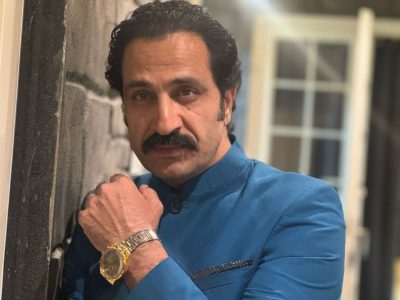Guneet Monga on her journey as a film producer, and the changing paradigms of co-producing
Indian film producer Guneet Monga known for her association with films like Gangs of Wasseypur, The Lunchbox, Monsoon Shootout, Masaan, Haraamkhor, Pagglait, among others, was recently bestowed with the honour of Knight of the Order of Arts and Letters at the Residence of France by French Foreign Minister Jean-Yves Le Dria for her contribution to cinema.
In this interview, Monga talks about her journey, changing paradigms of co-producing films, experience of running the Oscar campaign for Jallikattu, her involvement with Indian Women Rising, a film collective she recently launched in collaboration with Ekta Kapoor and Tahira Kashyap, and her upcoming projects.
Excerpts:
You have recently been bestowed with the honour of Knight of the Order of Arts and Letters. What does the honor mean to you?
Well, it’s been 15 years of working every day. Each and every film has been a huge hustle to pull off and take it far. When I first learnt about the honor very recently, I did get some time to reflect. To tell you the truth, receiving the honor felt like life coming a full circle. You see, I started as an intern in 2004 on a French-German film called Valley of Flowers. Then from there I moved to Mumbai, gradually moved up the ranks and became a producer. The first films that I took to Cannes were Gangs of Wasseypur and Peddlers in 2012. Then the year after that, The Lunchbox and Monsoon Shootout. So, I feel very grateful and humble.
You have done some groundbreaking work in the field of international film collaborations. How do you reflect upon your journey so far?
The way The Lunchbox was financed, I mean it makes me appreciate the power of creative producing. It’s not just the feedback on the script. It is also how the structure of the film is financed and that forms the footprint of the film. So, The Lunchbox is a case-study for that because it was French-German collaboration with American executive producers and I was the lead producer in it. And we had so many more people adding their experiences, exposures, footprints on the journey of the film, so it really expanded multifold the power of co-production. The Indo-French co-production treaty was signed in 1985 and I was the first one to use it for The Lunchbox in 2012. Then I used it again for Masaan. Also, I was consulting on a film called Titli, which I took to Cannes. That was in 2014 and Masaan was in 2015. So standing there joining those dots you feel like that each of these films have been amazing but beautifully tough journeys at the same time. Each and every day I used to find it very tough and often felt that I was not able to push things the way I would have liked but looking back at the decade I think I could do with some break right now.
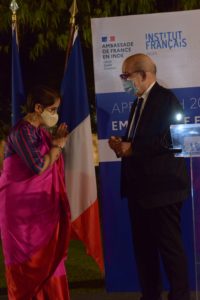
How has the co-production scene evolved in India over the years?
Back then, there were no digital buyers. Everybody used to judge you for trying to make independent cinema. Then they used to ask all kinds of questions about the logic behind co-producing films with other countries. Now, I have studied producing and I am fascinated with the way Europe produces films. Also, I am fascinated by the way India produces films. And I thrive on the periphery of Bollywood and I love making first time director movies. And we are a 100 percent equity industry. And here it all depends on how well your last film performed. Back then I was trying to bend those systems. There was no precedence. I had the advantage of being the first but also had to deal with the baggage of being the first and not having a peer group. I hope now the young producers can use the treaty more often and make more movies and engage in more cross-border work. For, it is always rewarding. Collaborations are beautiful. It is years of my career added with another co-producer’s. Now, of course, the conversations are very different, especially with the advent of digital in India. So, it’s been evolving pretty fast in the recent years.
A few months back you launched Indian Women Rising (IWR) that also presented the short film Bittu which had a great festival run and almost got an Oscar nomination. What’s the way forward for IWR?
While I am not in a position to share the details yet, we will be making some more announcements very soon on the next steps of our film collective. All of us, Ruchikaa Kapoor, Ekta Kapoor, Tahira Kashyap and myself, are very committed to our work post-Bittu. Also, globally, we have been having some very constructive discussions such as with the French-based Collectif 50/50. Even locally we have Women in Cinema Collective (WCC) which is playing an active role in the Malayalam film industry. So, there is so much to learn from one another.
You spearheaded the campaign for Jallikattu at this year’s Oscars. What was the journey like? Was there anything according to you that could have been done better?
I am really proud of the work we did on Jallikattu. We were able to get a US distributor and also managed to rope in an amazing publicist which allowed us to do a lot of good work there. This was the first year when there was no Executive Committee at the Academy Awards. So everything was online and we were all learning as we went along because of the pandemic.
At our end what we could do better is to have a yearlong strategy. If you make a film that breaks out at a prestigious festival such as Cannes or Toronto then you immediately start looking at the global footprint of the film. But a better strategy is to ensure that you take your film to London as all the voters are there. You should go to festivals in New York, LA, Palm Springs, among others. So the more international press and reviews that a film builds over the year, the better are its chances. You cannot propel a campaign overnight. So having a yearlong strategy in place is way better than running a two month campaign. I think the committee that picks India’s official entry for the Oscars needs to take this into account.
What are your upcoming projects?
I hope Peddlers releases soon. So we are looking at that. I have so many announcements coming out. I feel that our work at Sikhya Entertainment has just started and we are so excited. But I can’t talk much right now.
(Cover image – Guneet Monga)

